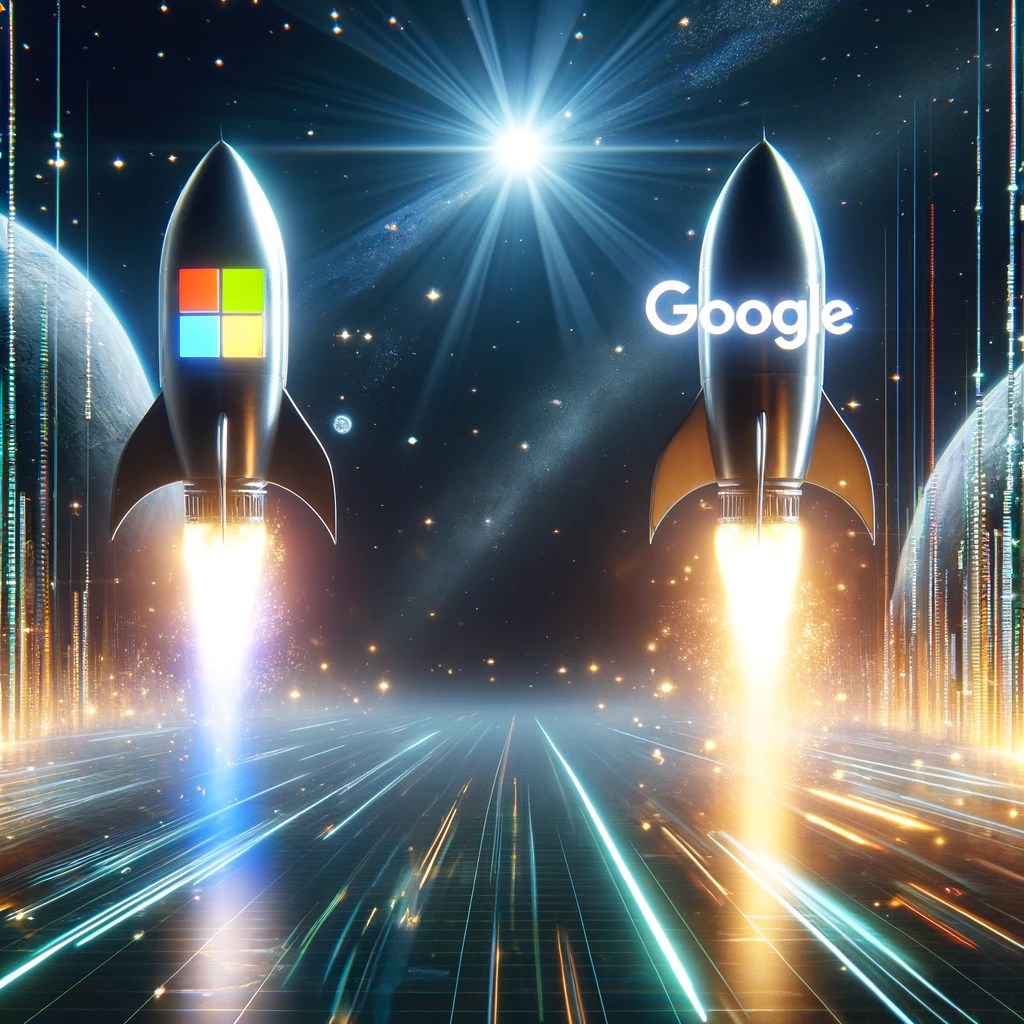
According to a leaked internal email, Microsoft invested $1 billion in OpenAI in 2019 due to serious concerns that it was falling behind Google in artificial intelligence (AI) development. The email, titled “Thoughts on OpenAI,” reveals high-level discussions between Kevin Scott, Microsoft’s Chief Technology Officer, Satya Nadella, CEO, and Bill Gates, co-founder, in the months leading up to the announcement of the partnership.
Microsoft’s Concern about Google’s Advantage.
In the June 12, 2019 email, Scott candidly admits, “We are light years behind the competition in terms of machine learning scale.” He explains that it took Microsoft engineers six months to replicate Google’s BERT language model because their infrastructure was not up to the task.
Initially skeptical of the AI efforts of OpenAI and Google DeepMind, Scott quickly became impressed when things shifted to natural language processing models. Praising Google’s Gmail autocomplete features as “frighteningly good” in 2019, Scott worried that some of Google’s early AI models were giving Bing a competitive advantage.
“The more I delved into where the capability gaps were between Google and us in model training, the more concerned I became,” Scott wrote.
Nadella’s Response and Gates’ Role
Nadella promptly forwarded Scott’s thoughts on investing in OpenAI to Amy Hood, Microsoft’s Chief Financial Officer, remarking, “This is why I want to do this.” Hood is a key member of Microsoft’s senior leadership team and regularly oversees the company’s financial goals and spending.
Although Gates resigned from Microsoft’s board in 2020 following an investigation into an affair with an employee, it appears he is still very much involved in Microsoft’s relationship with OpenAI. According to Business Insider, Gates has met regularly with OpenAI since 2016 and helped negotiate the deal.
The Impact of Microsoft’s Investment in OpenAI.
In the years since, Microsoft has invested more than $13 billion in OpenAI, integrating its models into Office apps, the Bing search engine, Edge and even the Windows operating system. This has allowed Microsoft to be seen as a leader in AI, instead of lagging behind as it feared five years ago.
Nadella recently called AI and security his two main areas of focus for Microsoft in 2024 and beyond, signaling that the rollout of AI capabilities in Microsoft products is not about to slow down.
Additional Sections.
The Rise of Artificial Intelligence.
In recent years, artificial intelligence has made extraordinary progress, revolutionizing areas such as speech recognition, computer vision and natural language processing. Companies such as Google, Microsoft and OpenAI have been at the forefront of this revolution, investing significant resources in the development of increasingly sophisticated AI models.
The Race for Artificial Intelligence.
The competition between tech giants such as Google and Microsoft to dominate the AI field has been intense. Both companies have realized the enormous potential of AI to improve their products and services as well as to open up new business opportunities.
The Role of OpenAI
OpenAI, a nonprofit AI research organization, attracted Microsoft’s attention through its advances in training large language models. The partnership between the two entities has enabled Microsoft to accelerate its efforts in AI by integrating OpenAI’s models into many of its key products.
The Ethical Implications of Artificial Intelligence.
While AI offers tremendous opportunities, it also raises important ethical issues. Transparency, accountability, and fairness in the use of AI have become critical concerns for companies and governments. Microsoft and OpenAI have both stressed the importance of responsible AI development.
The Future of Artificial Intelligence.
With continued investment and technological advances, AI is set to become increasingly present in our daily lives. From virtual assistants to autonomous driving systems, AI promises to revolutionize many areas. However, it will be critical to address the ethical and societal challenges associated with this powerful technology.
Article source here.
